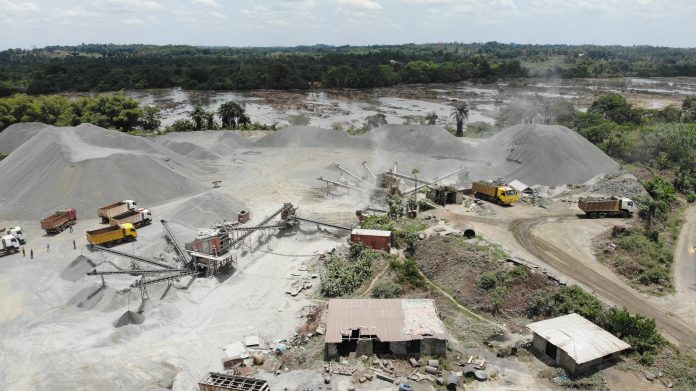Top: Z&C rock quarry, located 258 meters outside its license area, produces dust that covers everything in Harrisburg. The DayLight/Derick Snyder
By Harry N. Browne and Derick Snyder
HARRISBURG – Before the miners came to quarry rocks, Harrisburg, founded in 1841 by returned free slaves from the United States, was one of the quietest and most beautiful places in Liberia.
“Harrisburg was fine. The plants used to grow fine. When you plant potato greens, it grows fine. If you plant cassava it grows fine. The creeks were fine,” Yatta Taylor, a resident, said.
By 2012, everything began to change after Z&C Investment Company arrived. It had acquired a license to quarry rocks in this Rural Montserrado township along the St. Paul River.
In the last 12 years of Z&C’s operations, a cloud of dust the quarry produces has grayed the once pristine landscape. The resultant sound of rock explosion and crushing replaces the township’s quietude.
“The dust is suffering us here, it takes over all the crops and plants that we planted,” Taylor, who lives less than 500 meters away from the plant, told The DayLight.
“When we harvest the potato greens or cassava leaf to cook it, you have to wash it more than five times before cutting or [pounding] it to cook,” she added.
The plant operates nearly 24 hours a day, crushing rocks. Between January 2022 and April last year, it produced 126,000 cubic yards of rocks, according to an environmental audit approved by the EPA.
The environmental audit is contradictory. In its summary findings, it was inconclusive whether Z&C prevented water and air pollution in Harrisburg. However, in the details of the findings, it was conclusive that Z&C prevented water and air pollution.
Conclusive or inclusive, the report also contradicts a University of Liberia laboratory testing on Harrisburg’s water. The test shows the levels of chemicals, including phosphate, iron and manganese, were above their accepted levels. Manganese, for instance, can cause problems with memory, attention and muscle movements.
Ansumana Environmental Consultancy Inc., the Paynesville firm that conducted the audit, did not respond to queries for comment.
But satellite images and evidence of pollution reporters gathered are consistent and contradict the environmental audit report’s findings.
The images from Google Earth, which provides a three-dimensional representation of the planet, reveal that Z&C’s quarry plant operates outside its license area. The Chinese-owned company initially obtained its license in 2012, covering 50 acres of land. However, the images show that the quarry plant is at least 258 meters outside its license area.
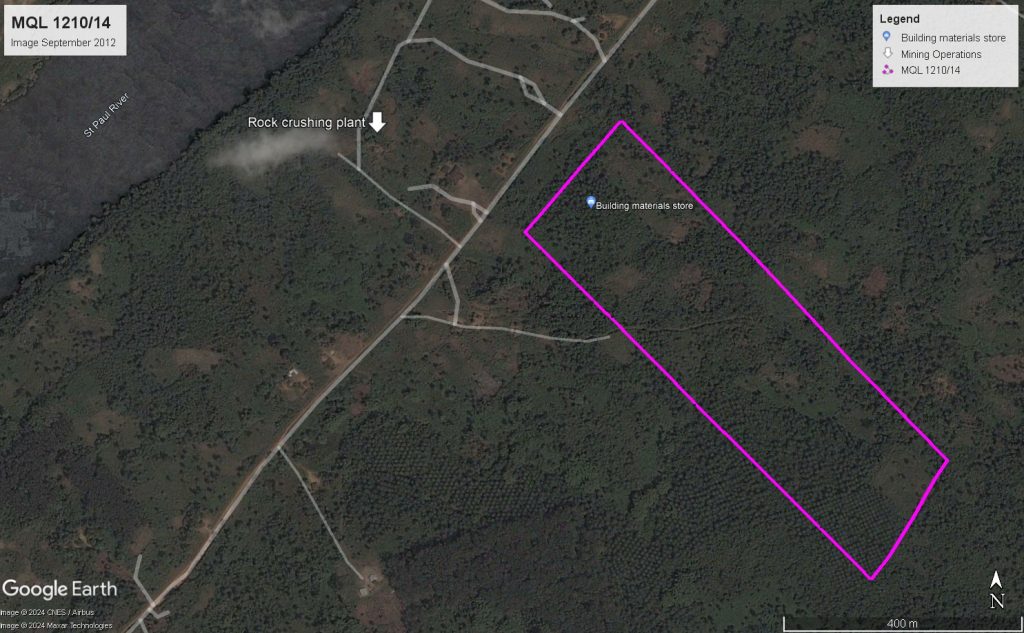
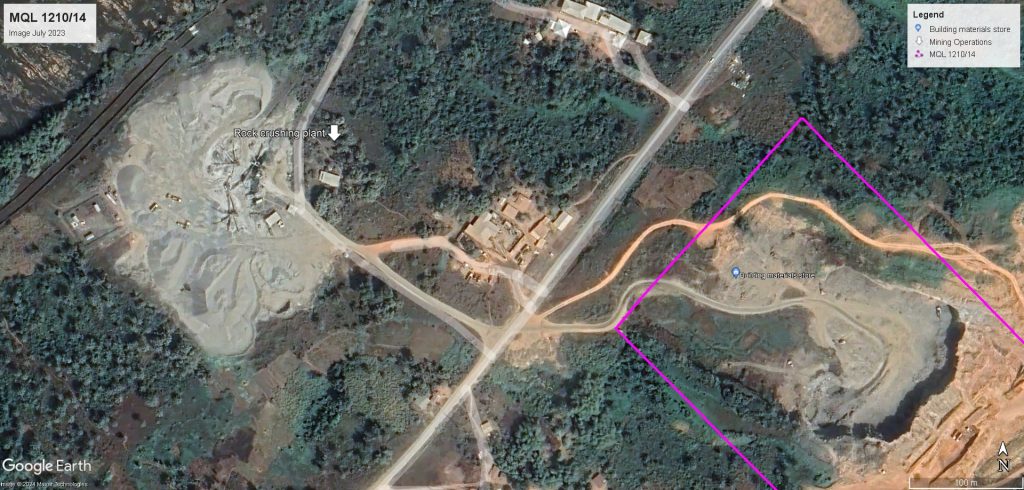
Z&C did not grant The DayLight’s request for an interview.
‘Can’t sleep’
Reporters filmed a huge cloud of dust released into the air and the St. Paul River nearby. Earthmovers, which Z&C’s workers used to transfer and transport crushed rocks, create dust. Noise from those activities and the quarrying plant pierced throughout the township.
Generally, a rock quarry plant produces noise pollution up to 116 decibels, according to a 2015 study. Noise pollution is any unwanted sound that affects the health and well-being of humans, according to scientists. Sound leads to noise when it exceeds more than 85 decibels.
Noise pollution leads to some serious health issues, scientists say. It leads to hearing impairment heart problems, sleep issues, heart blood pressure, and poorer work and school performance. It affects every person but the worst of them are children.
The study found that trucks produce up to 114 decibels, shovels and bulldozers 103 decibels and 116 decibels, respectively, while the grader produces 105 decibels.
“We cannot sleep when Z&C Investment Company say that they are ready to work for true…we can’t sleep,” Sarah Swaray, the chairlady of Harrisburg, said.
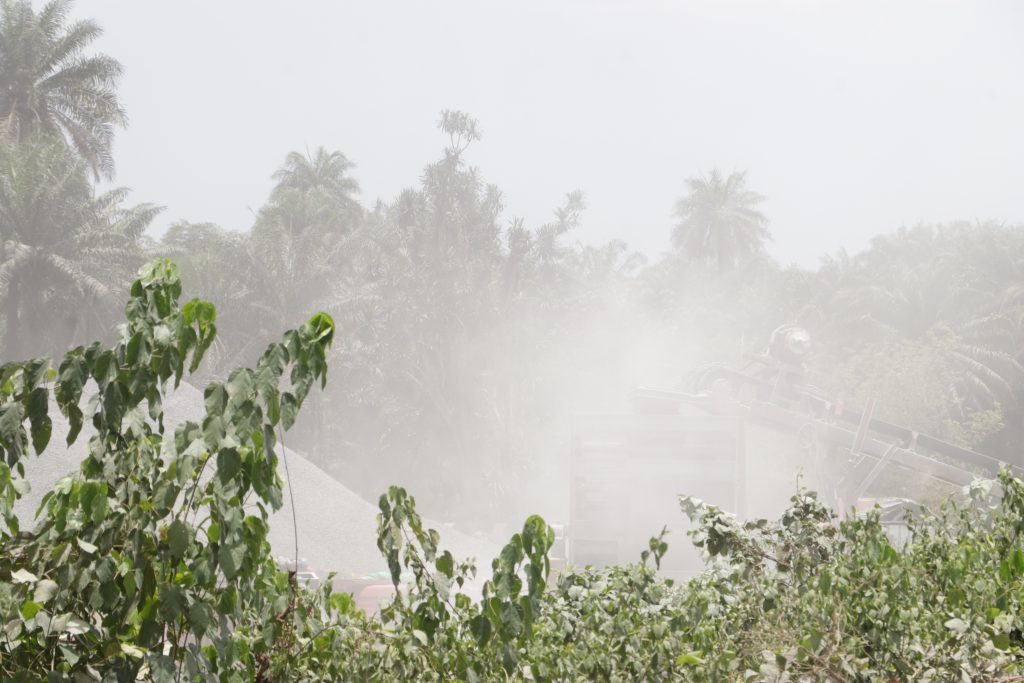
Swaray said at least five trucks moved in and out of Z&C’s operational area during the day.
Z&C begins daily explosions in the early morning hours, with earthmovers drilling holes into the mine. Then ammonium nitrate, a powerful explosive, is placed in the hole and ignited. The company’s blasting site is in Joe Ricks Town, about three minutes from Swaray’s home. The two other most affected communities are the Fire Point and Displaced Camp.
Blasting
A decade of Z&C blasting has left a huge open pit in Harrisburg. Elevated images show the pit gets deeper and wider, with three layers of digging.
The environmental audit found between January 2022 and April last year, Z&C used 1,423 bags of ammonium nitrate, which releases toxic gases—nitrogen oxide and ammonia gas—into the air.
Residents have raised their concerns for the safety of their children and the health of people in the community.
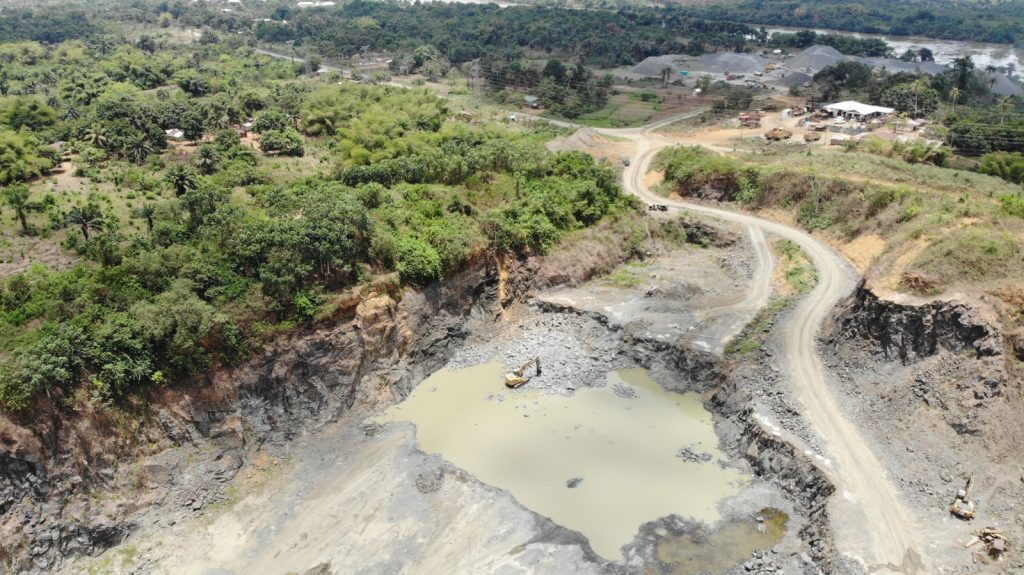
“Anytime Z&C [does]… blasting, the rocks fall over [the roofs of our houses]. When you check around this environment, you can see that many houses are cracked around here,” Prince Mitchell, a youth, said.
“The scent from the chemical affects us,” Thomas Ricks, a resident of Joe Ricks Town, said. “I do suffer from fresh cool, though no one has come up to say that it is from the dust.”
Dried, muddy creeks
Clearing the mine for explosions has led to the pollution of the creeks in Harrisburg. The Daylight reporters filmed earthmovers backfilling a valley through which a nearby stream flows.
The creeks in Harrisburg were a source of livelihood for many years. People used them for washing, cooking, drinking and other things. Now, no one uses them anymore. Other creeks have dried up.
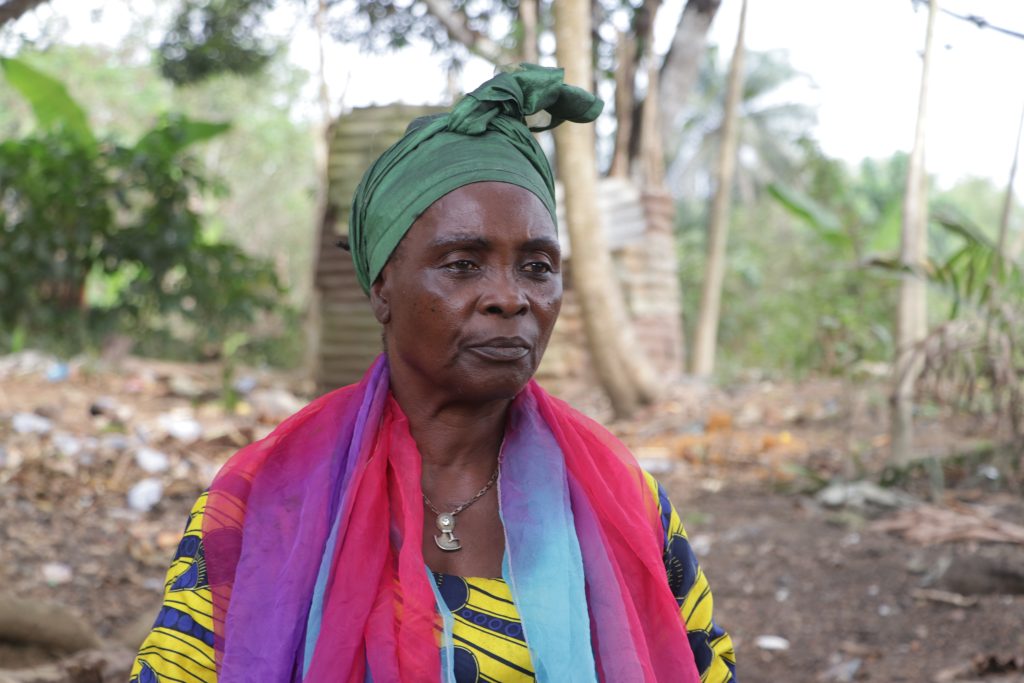
“They have closed the creeks that we normally drink from. They have spoiled everything,” said Kool J. Manyago, a resident.
The vibration from the explosions is also a worry for residents and their residencies. Many homes have developed major cracks due to the heavy blasting. Some of the cracks run from the roof to the floor of buildings.
As a result of the explosion and vibration, a family abandoned their home. They used to live close to mine, according to residents in the area. The house built from earth bricks finally fell to the ground. Debris of the home that are still visible among a bush.
“I am thinking in times to come what will become of [the pit they have dug here],” Elizabeth Kerkula, another resident said. Will the company be able to cover that hole? Will it be safe for others that will be living here…?
“I want the government to look at it.”
[Derick Snyder, Matenneh Keita and Charles Gbayor contributed to this report]
The United States Embassy provided funding for this story. The DayLight maintained editorial independence over the story’s content.

